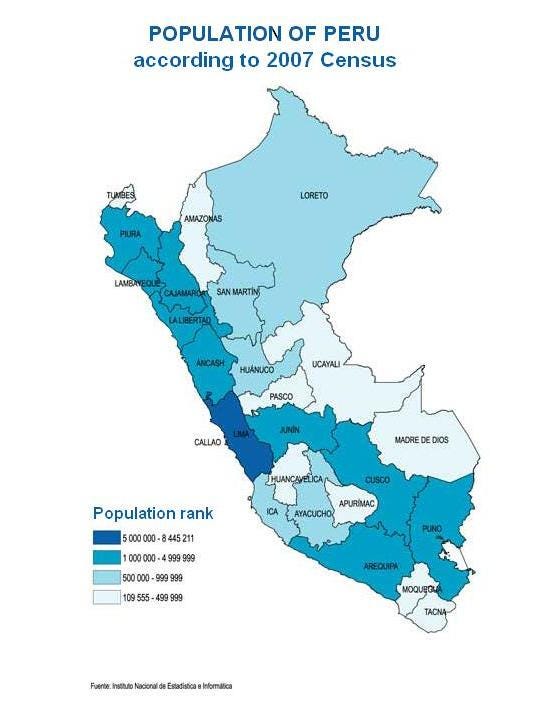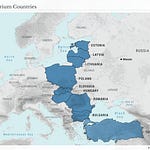Hey y’all,
I apologize for the temporary hiatus in geopolitical content.
In early August, I came down with an unidentified virus, which eventually morphed into pneumonia. (I’m sure my breakneck schedule didn’t help either.) After three rounds of antibiotics, I’m finally getting back to myself. And who better to return to the arena with than my friend Elohim "Elo" Monard, a frequent guest on my podcast, and also the host of a show I am personally backing: Conversando de Pol ítica, a podcast about geopolitics in Spanish.
This is also my first time posting a podcast directly to Substack subscribers.
Some of you may already be subscribed, but I wanted to share the content directly here and also to add a few thoughts about the episode itself. By the way, if you are a new subscriber, welcome to the Substack! W’ve tripled our audience since June - a signal that global geopolitics is increasingly on the top of people’s minds and that at least some of the content that I’m putting out there is answering questions that people have… Hopefully in a way that is non-ideological and puts understanding how things are over wishing they could be different.
Elo introduced me to a novel concept at the beginning of the year, one that I’ve noticed is starting to gain currency. The Atlantic, for instance, just published a long essay that is very much an extension of Elo’s thesis: namely, the Latin Americanization of U.S. domestic politics. One of the most interesting concepts that Elo brought up in today’s podcast is the idea that Latin American Spanish has different words that correspond to “soft dictatorship” and “hard dictatorship” — words that need to find English equivalents.
According to Elo, features of “soft dictatorship” include the militarization of security (in his words, “that is SO Latin American”). The Trump administration’s recent moves in DC, and potentially Chicago and my current hometown of New Orleans fit the bill. Elo mentioned that in soft dictatorships, regime enemies don’t get killed – they get exhausted because of the sheer amount of crap they have to sort through. Soft dictators are proficient at the monetization of political office ($TRUMP, anyone?), and the cronyism of soft dictators enforces a subtle regime of terror that leads to self-censorship and apathy.
Does the U.S. completely fit this model? Of course not – but there are enough similarities that make it worth pausing and thinking it through. Elo also noted the hypocrisy of expelling Latin American immigrants even as the U.S. is importing Latin American politics. I am also reminded of Elo’s analysis of the Latino vote in the U.S. presidential election in November, which he thought was driven by Latinos identifying with Trumpian machismo (Trumpismo?) over whatever it is the Democrats were offering.
Three other “ah ha” moments from the podcast that I think are worth highlighting:
1. I mentioned to Elo that it was unrealistic for Latin American countries to engage with China – it is too far away and not powerful enough. Elo, who is from Peru, put me in my place when he asked if I knew who manages most of Lima’s electricity (Lima is Peru’s capital and home to ~35 percent of Peru’s population). I had to confess ignorance, and Elo educated me that the electricity is controlled by two Chinese companies. China has made more inroads than I could see.
2. There are four critical elections coming up in South America over the next 18 months: Bolivia, Chile, Colombia, and Peru. A rightward shift in these largely left-leaning countries could have major implications for the success of U.S. policy in the region – right-leaning governments would work better with the Trump administration's goals. We also discussed Brazil’s immense potential as a regional power in this regard.
3. Elo raised the notion that the recent U.S. attack on a Venezuelan ship accused of carrying drugs and cartel members could be justification of a “war on drugs 2.0.” After all, the Department of Defense is now the Department of War again, and what is a Department of War without a war? From my own anecdotal experience, I find that many Latin Americans would welcome greater U.S. involvement in attacking organized crime, but Elo said from his point of view, such involvement would be doomed to fail because the U.S. has lost a sense of empathy for his region – that at least in the recent past there was a narrative about caring for individual people, whereas the present is naked transactionalism and machismo.
For readers/listeners based in the U.S., some of Elo’s views will be hard to digest, like his assertion at the beginning of the podcast that the U.S. is self-evidently an empire in a state of decline. As I always try to remind listeners – if you agree with everything I say or write, I’m doing my job incorrectly. My job on the podcast in particular is to bring you voices and analysis from people I think offer a valuable perspective, and it is ultimately up to you how you integrate that perspective into your own worldview.
If you are looking to agree with everything you read or see, there are plenty of outlets and celebs out there you can follow, one of the more prominent ones shares my last name. Maybe one day Ben will notice I exist and accept my challenge to debate him anytime, anywhere on a topic of his choosing.
In the meantime, however, I hope consuming this content leaves you a little bit smarter than you were when you started. That’s always my goal – no more, no less.
Also, if you’re curious what the special intro music is, here’s a link to the song. It’s sung by Marília Mendonça, a Brazilian singer, songwriter and instrumentalist, posthumously recognized in Brazil as the Queen of Sofrência, a subgenre of sertanejo, or basically Brazilian country music. She died tragically in a plane crash in 2021, and I’ve been low-key obsessed with her music since then. This particular song’s refrain is one I always come back to:
Ninguém vai sofrer sozinho (No one will suffer alone)
Todo mundo vai sofrer (Everyone will suffer)
If you’re a pessimist you’ll over-index on the last line – but I prefer the sentiment of the penultimate line: No one will suffer alone. In that spirit, it’s good to be back.






